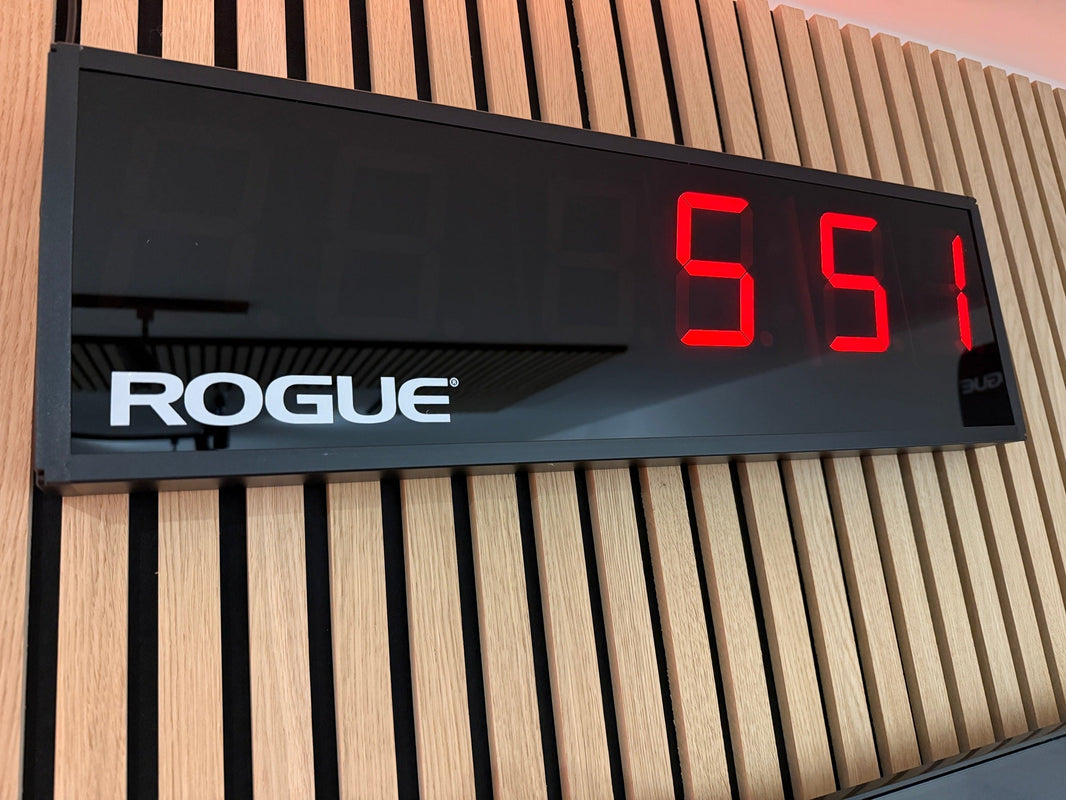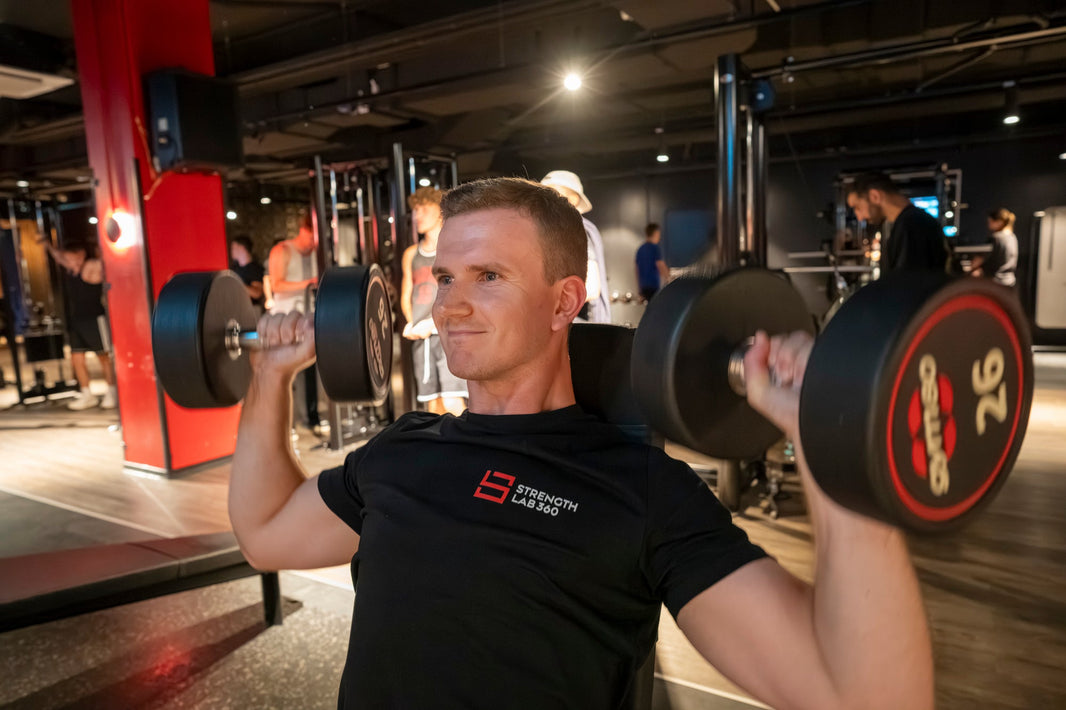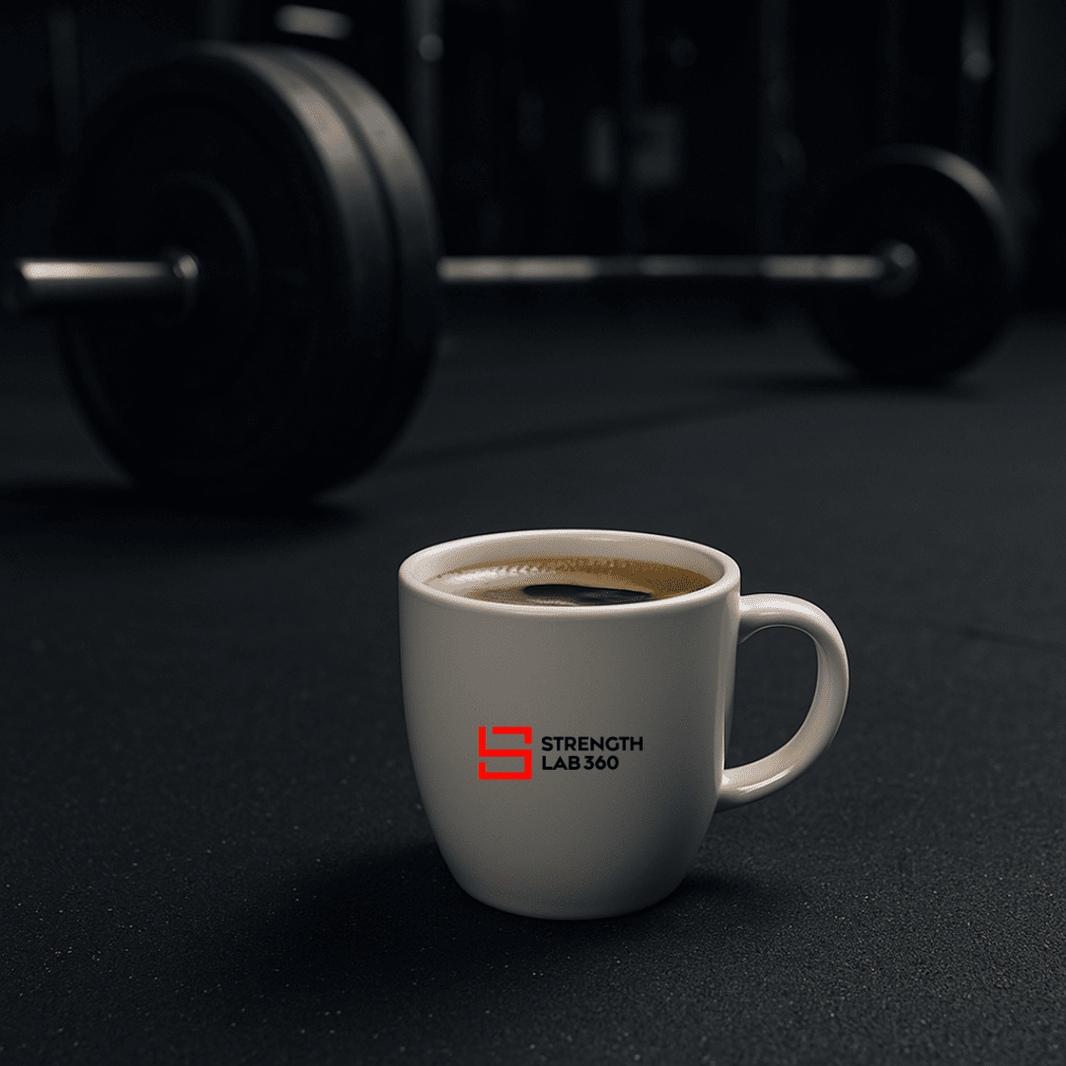Creatine supplementation is one of the most researched and effective tools in sports performance. Widely used by athletes and strength trainers, it enhances strength, hypertrophy, power, and recovery. At StrengthLab360, we explore the science behind creatine to provide evidence-based guidance on how it can support your strength training and fitness goals.
Download the Scientific Creatine Paper by StrengthLab360 HeadCoach Karl:
Understanding Creatine: Benefits, Uses, and Mechanisms Explained
Creatine is a naturally occurring compound primarily stored in skeletal muscle, playing a crucial role in energy production during high-intensity, short-duration activities. While your body produces about 1 gram of creatine daily from amino acids, supplementation can significantly boost muscle creatine stores, offering notable benefits for strength and performance.
Benefits of Creatine Supplementation
Increased Strength and Power
Creatine enhances the availability of adenosine triphosphate (ATP), the primary energy source for cellular activities. By replenishing ATP faster during exercise, creatine enables improved performance in explosive, high-intensity movements such as weightlifting, sprinting, and jumping (Kreider et al., 2017).
Enhanced Muscle Recovery
Creatine supplementation reduces muscle cell damage and inflammation caused by intense training, promoting faster recovery. This allows athletes to train more frequently and maintain higher intensities without compromising recovery (Rawson et al., 2011).
Promoted Muscle Growth
Beyond its direct performance benefits, creatine contributes to hypertrophy by increasing water content in muscle cells, creating an anabolic environment that supports muscle protein synthesis. Over time, this enhanced training capacity leads to significant gains in muscle mass and strength (Candow et al., 2008).
The Science Behind Creatine Loading and Maintenance
Loading Phase
To saturate muscle creatine stores rapidly, a loading phase is often recommended. A typical loading protocol involves consuming 0.3g of creatine per kilogram of body weight daily for 5–7 days, divided into 3–4 servings. This phase is optional but accelerates the time required to achieve full muscle saturation.
Maintenance Phase
After the loading phase, a daily maintenance dose of 0.03g/kg of body weight is sufficient to maintain elevated creatine levels in the muscles. Consistency is key, as muscle creatine stores naturally deplete over time without regular supplementation.
Timing and Absorption
While creatine can be taken at any time, pairing it with a carbohydrate source may enhance uptake due to the insulin-mediated transport of creatine into muscle cells (Steenge et al., 2000). It’s essential to take creatine daily, not just on training days, to maintain optimal levels.
Creatine and Safety Considerations, Should You Take Creatine?
Creatine is one of the safest supplements available, with extensive research supporting its use in both short- and long-term applications. However, some considerations are important for maximizing its benefits and avoiding potential side effects:
Adequate Hydration
Creatine increases water retention within muscle cells, so staying well-hydrated is essential to prevent dehydration and maintain electrolyte balance.
Pre-Existing Conditions
While generally safe, individuals with kidney issues or other health concerns should consult a healthcare professional before starting creatine supplementation (Poortmans & Francaux, 2000).
How StrengthLab360 Supports Creatine Supplementation
At StrengthLab360, we provide comprehensive tools and resources to help you integrate creatine supplementation into your training regimen effectively.
Educational Resources
Access in-depth articles and research summaries on creatine, its mechanisms, and its impact on performance and recovery through our platform.
Expert Guidance
Our certified coaches offer personalized recommendations on creatine dosing, timing, and combinations with other training strategies to help you achieve your specific fitness goals.
Community Support
Engage with a community of athletes to share experiences, tips, and insights on using creatine effectively. Whether you’re new to supplementation or a seasoned user, our forums offer valuable peer support.
Advanced Insights into Creatine’s Effects
Enhanced ATP Replenishment
ATP is depleted rapidly during high-intensity exercise. Creatine supplementation increases phosphocreatine stores, enabling quicker ATP regeneration. This effect is particularly beneficial for repeated bouts of maximal effort, such as during resistance training or sprint intervals (Branch, 2003).
Muscle Fiber Adaptations
Creatine predominantly benefits fast-twitch muscle fibers (Type II), which are responsible for explosive power and strength. By enhancing the performance of these fibers, creatine contributes to improved athletic performance in power-dominated sports (Casey & Greenhaff, 2000).
Cognitive Benefits
Emerging research suggests that creatine may enhance cognitive function, particularly in sleep-deprived or stressed individuals. This effect is attributed to creatine’s role in ATP production, which supports brain energy metabolism (McMorris et al., 2007).
Practical Tips for Creatine Use
- Choose the Right Form: Creatine monohydrate is the most researched and cost-effective form. Avoid unproven alternatives marketed as superior.
- Be Consistent: Daily supplementation is essential to maintain creatine levels in muscle cells.
- Combine with Resistance Training: Creatine supplementation alone is not enough—its benefits are maximized when paired with a well-structured resistance training program.
- Track Progress: Monitor strength gains, recovery, and muscle growth to assess creatine’s effectiveness in your regimen.
Future Research Directions
While creatine’s benefits are well-established, ongoing research explores its applications in new areas:
- Aging Populations: Creatine may help preserve muscle mass and strength in older adults, reducing the risk of sarcopenia (Kreider et al., 2017).
- Injury Recovery: Preliminary findings suggest creatine may accelerate recovery from musculoskeletal injuries by enhancing muscle repair and reducing inflammation.
- Disease Applications: Researchers are investigating creatine’s potential role in managing neurodegenerative diseases like Parkinson’s and Huntington’s due to its neuroprotective properties (Matthews et al., 1999).
Conclusion
Creatine supplementation is a scientifically validated, highly effective strategy for improving strength, power, and recovery. By understanding its mechanisms and applying evidence-based guidelines, athletes can unlock new levels of performance and progress.
At StrengthLab360, we integrate cutting-edge research with personalized coaching to help you maximize the benefits of creatine and achieve your fitness goals. Join us today and discover the future of strength training—backed by science, powered by results.







